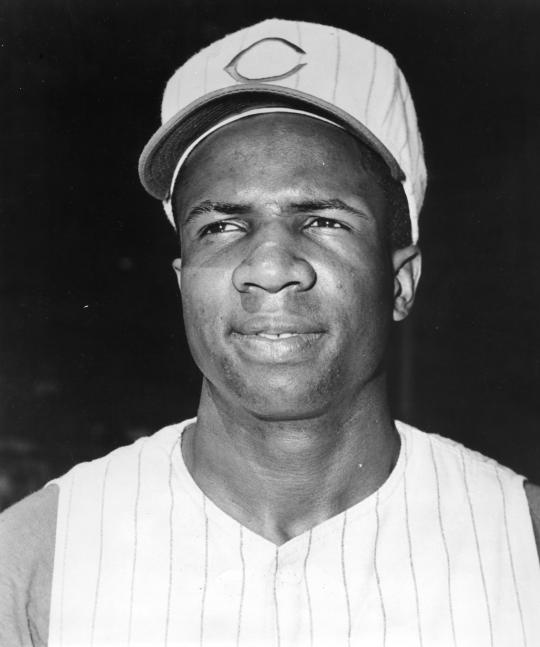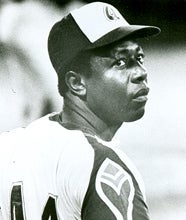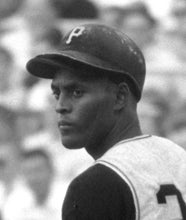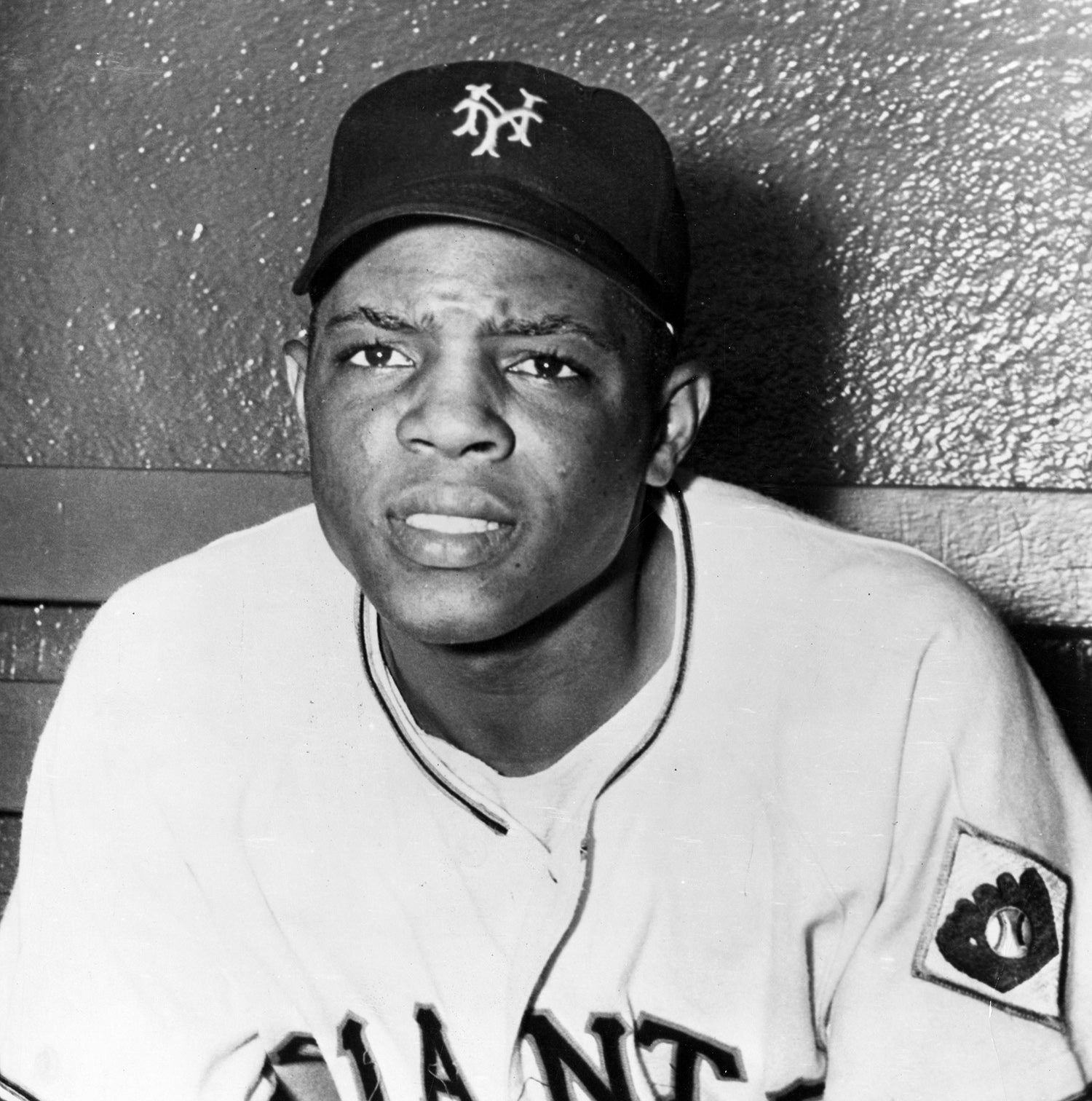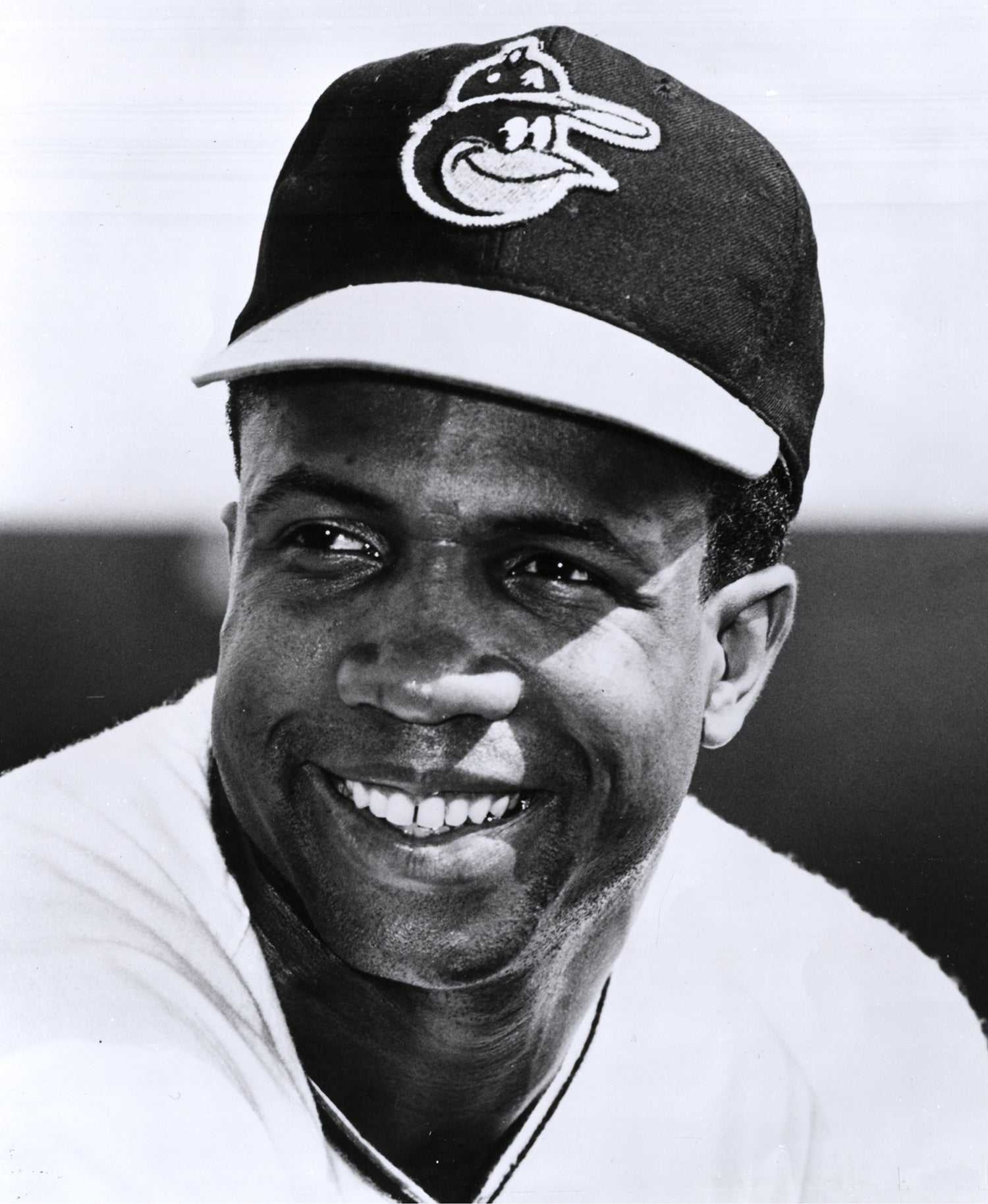- Home
- Our Stories
- Robinson powers Reds by hitting for cycle
Robinson powers Reds by hitting for cycle
After spending most of his first three seasons in the big leagues in the outfield, Frank Robinson began the 1959 campaign at first base as the Cincinnati Reds tried to get their best bats into the lineup.
But Robinson preferred his customary left field spot – and when he was returned there on May 2, he celebrated with one of the best games of his stellar career.
Against the Los Angeles Dodgers that afternoon at Crosley Field, Robinson hit for the cycle, driving in five runs as the Reds won 16-4.
Hall of Fame Membership
There is no simpler, and more essential, way to demonstrate your support than to sign on as a Museum Member.
After drawing a first inning walk, Robinson singled in the third off Gene Snyder, who was making his first big league start and just his second appearance. The Reds chased Snyder in the fourth inning, and Robinson delivered a three-run triple off Johnny Klippstein as Cincinnati took a 9-3 lead with a seven-run outburst.
In the sixth inning – with Sandy Koufax on in relief of Klippstein – Robinson hit a two-run homer, a mammoth blast that Dayton Daily News writer Jim Ferguson reported “was almost as high as the flag on the flagpole when it went past that spot, finally landing up a side street across Western Avenue.”
It was one of seven home runs Robinson would hit off Koufax over 121 career plate appearances, helping Robinson total a .505 slugging percentage off the Hall of Fame lefty. Among batters with at least 100 plate appearances against Koufax, only Hank Aaron (.647), Roberto Clemente (.550) and Willie Mays (.536) had a better slugging percentage.
The Reds batted around against Koufax in the sixth inning and Robinson struck out against reliever Carl Erskine, who would appear in only seven more games before the end of his career, to finish the inning.
Then, needing a double to complete the cycle, Robinson came to the plate against Erskine in the bottom of the eighth and hit a ball off the clock atop the Crosley Field scoreboard.
Ferguson described the blast as “a clout that would have been an easy homer if it would have been a little to either side” but Robinson happily took the double and completed the cycle.
Robinson continued to move between first base and left field for the rest of May and into June, stayed at first for virtually all of July and August and then moved back to left field in September. He finished the season with a .311 batting average, 36 homers and 125 RBI.
Robinson’s last days as a player came in the 1976 season when he was managing the Indians. He finished his career with 586 home runs, 1,812 RBI and a .294 batting average – and one cycle.
He was elected to the Hall of Fame in 1982.
Craig Muder is the director of communications for the National Baseball Hall of Fame and Museum
Related Stories
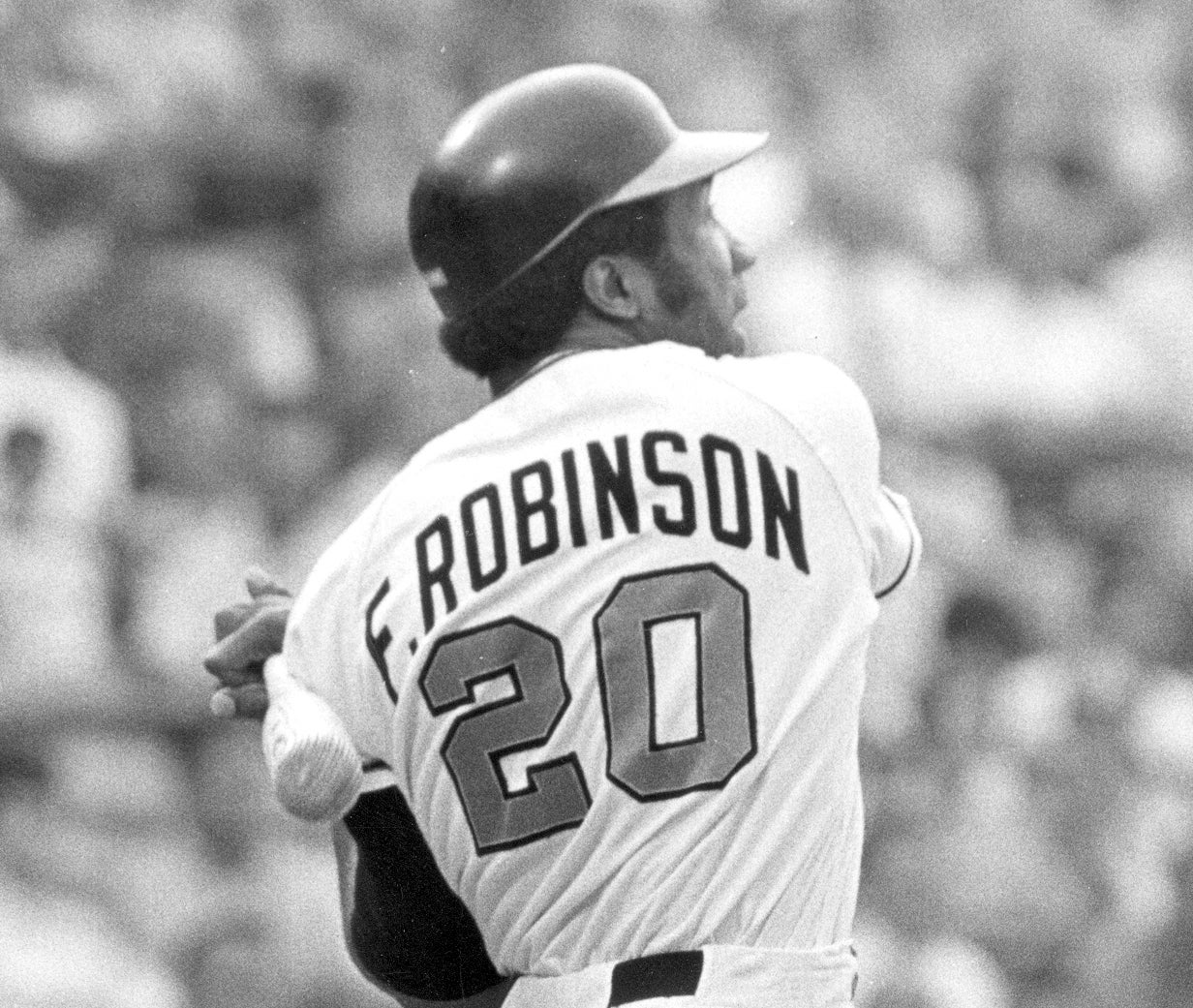
Frank Robinson Traded to Orioles
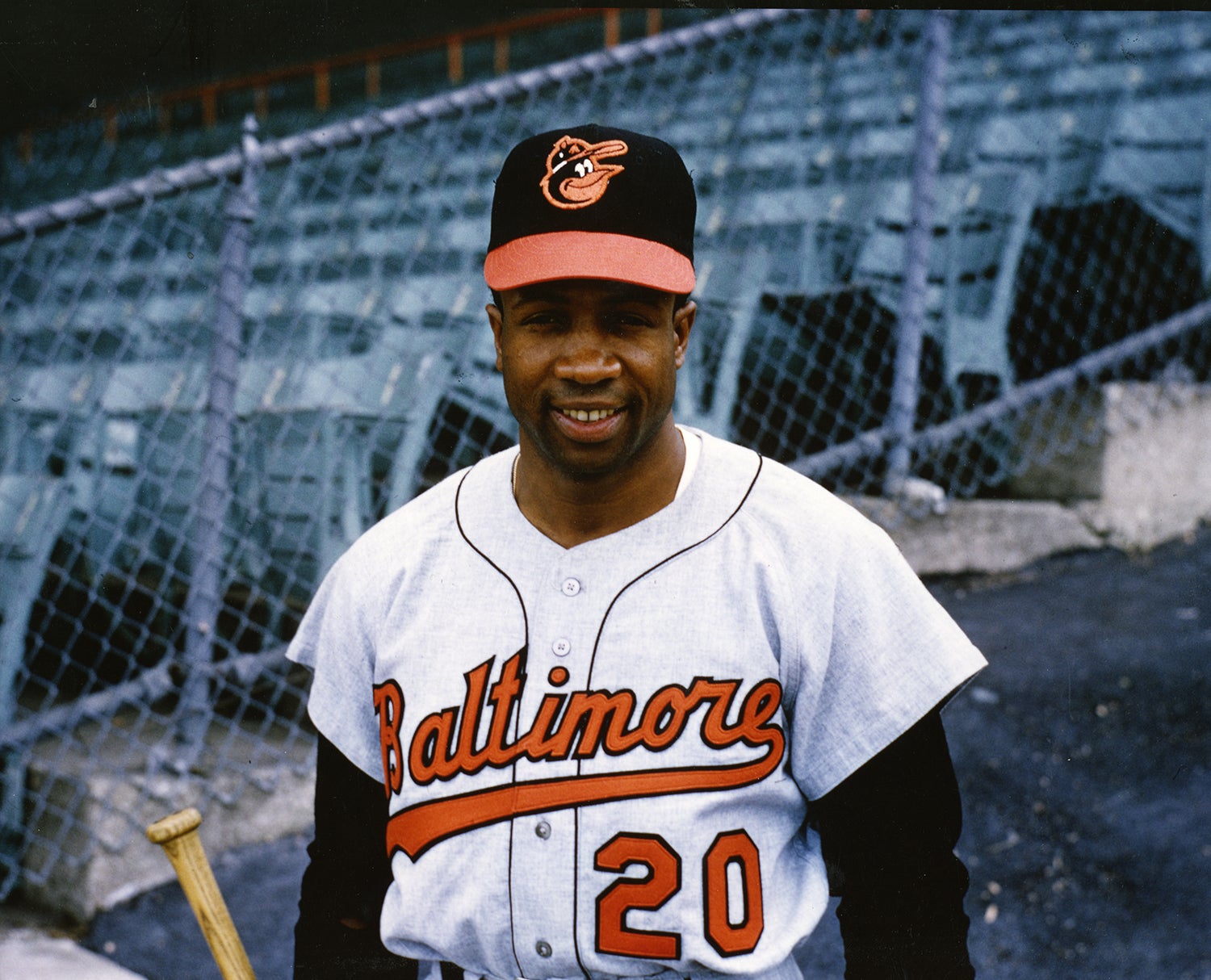
Frank Robinson joins the 500 home run club
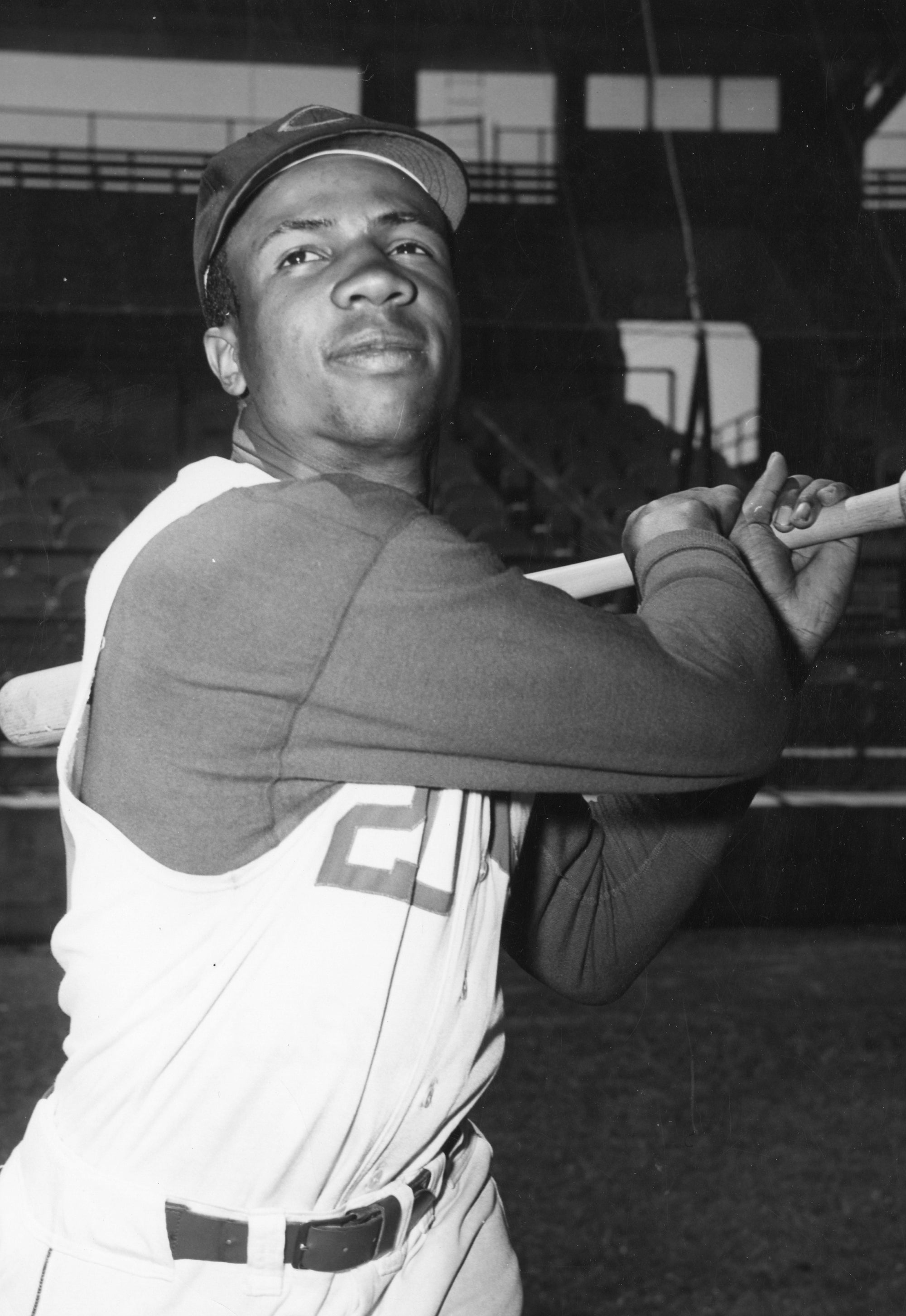
Frank Robinson stars in first big league game

Frank Robinson made history in AL and NL
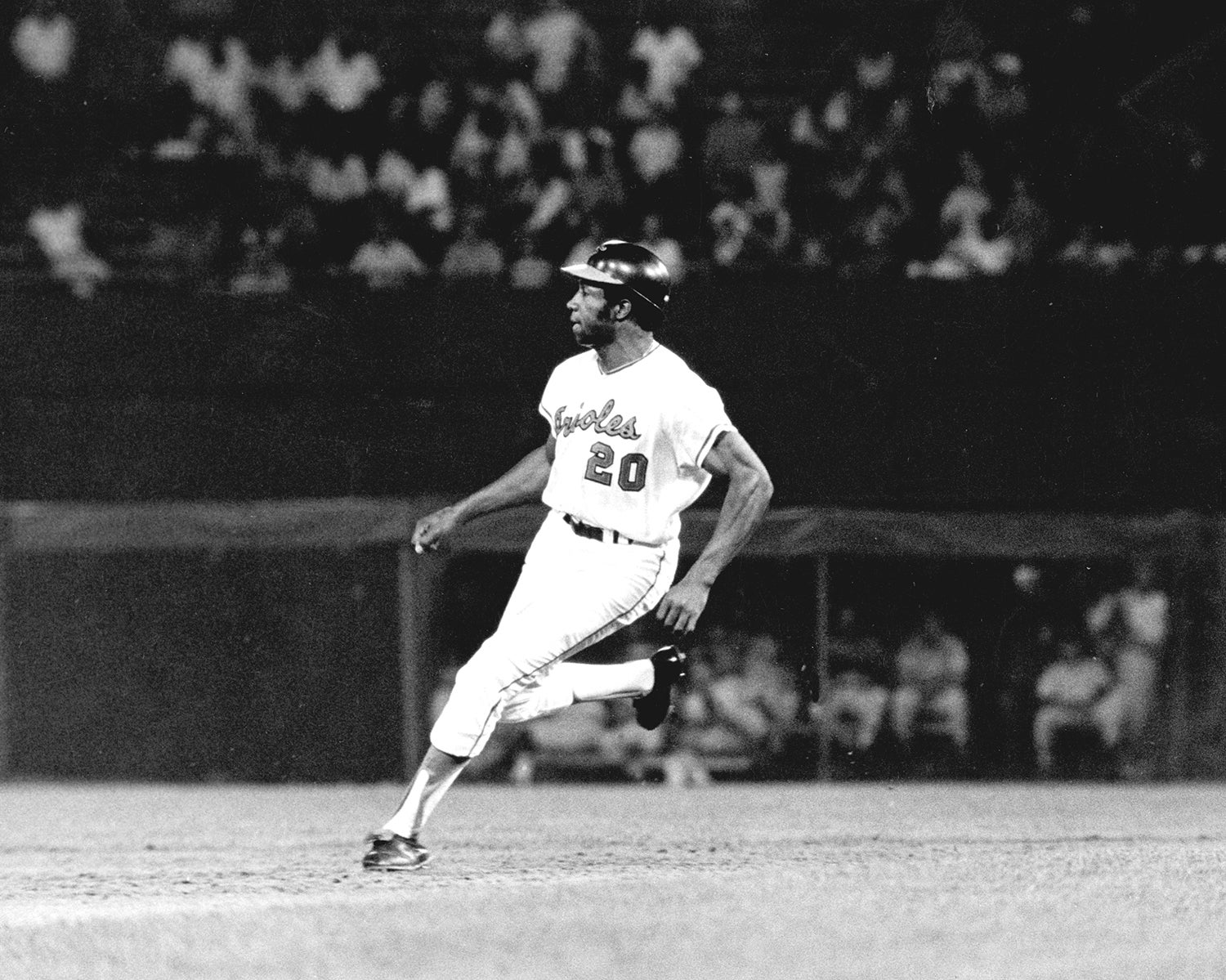
Frank Robinson named 1966 AL MVP
Related Stories

#CardCorner: 1980 Topps David Clyde

"K" as in Cain

Symposium brings together baseball, academia

#CardCorner: 1972 Topps Blue Moon Odom

#CardCorner: 1972 Topps Jose Pagan

Robinson powers Reds by hitting for cycle

#CardCorner: 1972 Topps Ken Berry
Hall of Fame Makes Series of Announcements
01.01.2023

